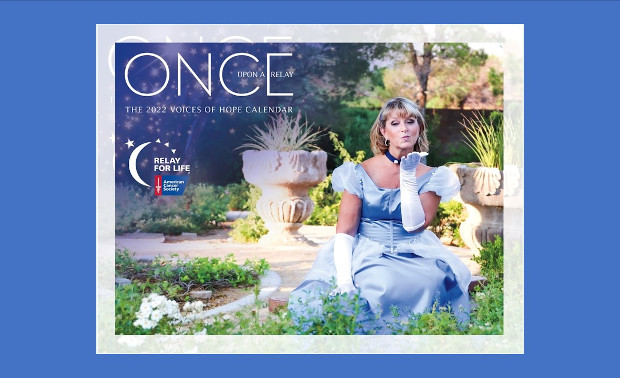Friday, December 31, 2021
Thursday, December 30, 2021
New ACS analysis shows large declines in cancer mortality since 1971 Passage of National Cancer Act
It’s been 50 years since President Nixon signed the National Cancer Act, launching the War on Cancer. How did we do? Substantial progress has been made in the war against cancer, according to new analysis from the American Cancer Society.
Appearing online Nov. 11 in JAMA Oncology, the analysis found that as of 2019 mortality rates for all cancers combined dropped by 27% since 1971 and by 32% since 1991, when mortality rates were highest. Mortality rates have dropped since 1971 for 12 of 15 investigated cancer sites, including by as much as 70% for cervical and stomach cancer. However, rates increased in parts of the South and for pancreatic cancer and progress was limited for brain and esophageal cancers.

“The increase in overall cancer mortality in many parts of the southern states suggests unequal dissemination of advances in cancer control like the availability of screening and therapeutic advances,” said Ahmedin Jemal, DVM, PhD, senior vice president of Surveillance and Health Equity Science, “whereas the continuous increase in pancreatic cancer mortality underscores the need for increased investment in the prevention, early detection, and treatment of this highly fatal disease.”
The year 2021 marks the 50th anniversary of the National Cancer Act of 1971, which designated defeating cancer as a national priority. The Act allocated substantial resources to the National Cancer Institute, which has seen a 25-fold annual budget increase since the law was enacted, from 227 million to 6.01 billion.
ACS researchers, led by Tyler Kratzer, epidemiologist, analyzed national cancer mortality data from the National Center for Health Statistics for all cancers and for the top 15 sites in 1971, which accounted for 81% of cancer deaths at the time. Rate ratios and rate differences were calculated to compare mortality in 2019 to 1971 and rate peak years when applicable.
Researchers credit the decline in mortality rates to improvements in prevention, early detection, and treatment. For example, the substantial declines in lung, oral cavity, and bladder cancer mortality largely reflect reductions in smoking due to enhanced public awareness of health consequences, increased cigarette excise taxes, and smoke-free laws, whereas the large declines in female breast and colorectal cancer mortality are mainly due to screening and advances in treatment.
According to the authors, the findings demonstrate considerable progress in reducing cancer burden in the wake of expanded public investment following the passage of the National Cancer Act in 1971. Improving health equity through investment in social determinants of health and implementation research is critical to ensuring continued progress.
*Shared from MySocietySource.
Wednesday, December 29, 2021
2022 Voices of Hope calendar ready to order
It celebrates survivors and raises funds for our mission.
The American Cancer Society Voices of Hope is a nationwide group of cancer survivors and caregivers who share their personal stories of their cancer journey to inspire others to support our lifesaving mission. Serving as a highly visible model of personal victory over the disease, 14 of our Voices of Hope members are now being featured in a special calendar with all proceeds going to support the ACS mission.

The 2022 calendar, titled “Once Upon a Relay,” celebrates the diversity of cancer survivors and caregivers, the journeys they each take, and the fairytale character each associates with the most.
Order calendars here. For a $20 donation to ACS you get one calendar, and a $30 donation will get you two.
“The Once Upon A Relay calendar has been a fairy tale project for me, pun intended,” said Joe Gillette, longtime ACS volunteer from the Northeast Region. “My collaboration with members of the Voices of Hope survivors and caregivers has been enchanting. Pun intended again. At first glance you will no doubt get caught up in the color and creativity of each of the Voice's layouts. Then, on second glance, you will come to learn the moral of this project, that every voice can wield the most powerful tool of all – its story.”
The Voices of Hope members featured in this calendar include:
- Ashley McAuley, Houston, Texas
- Becky Euler, Duncan Wakarusa, Kansas
- Debbie Leslie, McDonald Alvin, Texas
- Diane Denoyer, Traverse City, Michigan
- Jason Masony, Medina, Ohio
- Jean Tolley Grieve, Fort Walton Beach, Florida
- Julie Turner, Vandalia, Ohio
- Krista Lee, Elgin, Texas
- Marcia Sharkey, Fitchburg, Massachusetts
- Robin Campbell, Kingman, Arizona
- Sara Thornburgh, Lebanon, Tennessee
- Shelly Miller, Las Vegas, Nevada
- Theresa Sells Miller, Waller, Texas
- Tina Clower Atchison, Little Elm, Texas
- Valerie Frazier, Martinsville, Indiana
Tuesday, December 28, 2021
Majority of cancer patients struggle to afford care
Financial strain seen across all insurance types, including Medicare.
The majority of cancer patients in the U.S. say they struggle to afford the costs of their cancer care.

According to the latest Survivor Views survey from the American Cancer Society Cancer Action Network (ACS CAN), 61% of cancer patients and survivors find it somewhat or very difficult to afford their care. The financial strain is felt across all individual, employer, and public insurance types, including more than half (52%) of those on Medicare.
The strain is especially challenging for people with family incomes under $70,000 per year. More than half of this group says that cost is among the most important factors determining their care and roughly 1 in 8 of those with family incomes less than $35,000 a year say cost is the top factor. This group is also more likely to delay or skip filling a prescription to save money (34%) and are more apt to cut pills in half to reduce costs (18%).
Over 80% of patients say they’ve had to make financial sacrifices to cover their health care expenses, including 44% who’ve dipped into their savings, 36% who’ve gone into credit card debt to pay medical bills, and nearly a quarter who say they did not schedule or cancelled an appointment or procedure because of cost.
“Patients need to be able to make decisions about their cancer treatment based on the best medical care for their diagnosis, not based on cost,” said Lisa Lacasse, president of ACS CAN. “It is unacceptable that some patients have to choose between cancer treatment and paying rent or incurring huge amounts of debt. The evidence is clear lawmakers must pass policies that lessen cancer patients’ financial toxicity and improve equitable access to the services and treatments necessary to save more lives from this disease.”
Currently the U.S. Senate is considering several provisions in the Build Back Better Act that would alleviate some of the financial stress patients face. Those provisions include, extending increased subsidies for purchasing private insurance on the marketplace, providing access to affordable health coverage for more than two million people in a dozen states which have yet to expand Medicaid, capping Medicare enrollees’ out-of-pocket drug costs, and providing paid family and medical leave for those who need time off to undergo cancer treatment or care for a loved one with cancer.
“Congress is on the cusp of making significant improvements for cancer patients and their families. This data once again makes clear how much patients are relying on their lawmakers to do the right thing. We call on all Senators to find a path forward and vote to enact key patient affordability provisions to ensure their constituents can access affordable, quality care without risking financial ruin,” Lisa said.
*Shared from MySocietySource.
Monday, December 27, 2021
Saturday, December 25, 2021
Tuesday, December 21, 2021
Monday, December 13, 2021
Sunday, December 12, 2021
International Universal Health Coverage Day
Everyone
deserves access to quality, affordable health care. From cancer screenings like
mammograms and colonoscopies to the latest breakthroughs in treatment, everyone
should have access to the care that could prevent cancer and save their life. In
addition, ensuring that low-income
working families
have access to affordable health insurance is proven to reduce overall health
care costs.
The American Cancer Society Cancer Action Network (ACS CAN) is working
to expand health care options across America and protect existing laws that
help patients get true access to the care they need.
Monday, December 6, 2021
Cancer Screen Week
Sunday, December 5, 2021
International Volunteer Day
Saturday, December 4, 2021
Wednesday, December 1, 2021
End-of-Year Giving
American Cancer Society’s End-of-Year campaign is a bold, authentic, inspiring movement that seamlessly represents our organizational commitment to diversity. The goal is to create a sense of urgency to drive revenue from current supporters and affinity groups, as well as individuals new to our fight. Donate today at donate.cancer.org.











